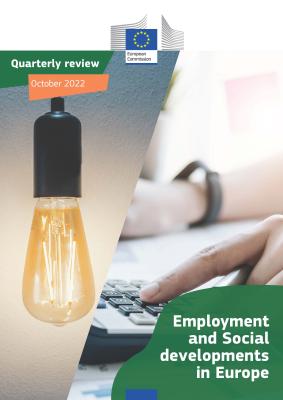This section allows you to
- search publications by subject, keyword, publication date or type
- order the publications you are interested in by contacting us or through EU Publications, the online catalogue of publications of the European institutions
Filter by
Publications (208)
RSS
The October 2022 edition of the Employment and Social Developments Quarterly Review presents and discusses data that was mostly collected in the first half of 2022 and made available in the weeks ahead of publication of this review.

This conference explored the latest strategies and solutions to address the pressing challenges facing the labour market, including skill shortages, mismatches, and the impact of digitalization.
This toolkit provides a practical guide, with concrete examples, for how Public Employment Services (PES) can promote the participation of persons with disabilities in the labour market.
This study explores and investigates the skills needs of various SMEs, from a broad set of sectors and maturity stages. Based on the analysis of the literature, interviews with stakeholders and SMEs, as well as tool case studies.
The report examines long-term care systems for people aged 65 or above in the 27 EU Member States. It reveals that long-term care challenges have become increasingly salient in recent decades in EU Member States’ policy and political agendas.
In July 2022, all countries reported some labour law developments. The following were of particular significance from an EU law perspective.

The European Union Programme for Employment and Social Innovation (EaSI) provides financial support to promote a high level of quality and sustainable employment, guarantee adequate and decent social protection, combat social exclusion and poverty, and improve working conditions across the EU.

The ESCO annual report is a publication that aims to offer an overview of the main developments of the ESCO project in a given year. It helps the community of ESCO stakeholders to follow the evolution of ESCO, and it also serve the purposes to further promote the project in the digital labour market

This mini toolkit presents information on concepts, tools, and practices which can support stakeholders in using European Social Fund Plus (ESF+) resources to assist in the integration of people furthest from the labour market, including long-term unemployed and inactive people, including older jobs

The questions featured in this document aim to guide those managing or implementing the ESF and ESF+, including managing authorities, intermediate bodies, relevant ministries, and organisations working to develop projects and initiatives promoting digitalisation in employment, education, and traini
